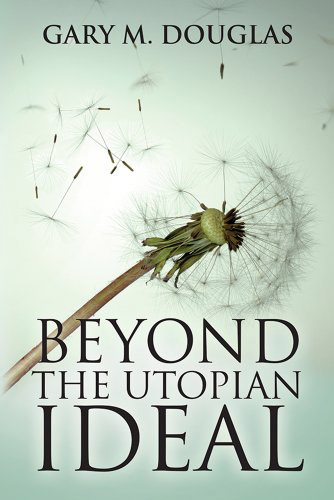
When you are willing to let go of the constructs you hold about what is ideal, you open yourself to the possibility of being present and engaged in life.
—
An ideal is something that you have judged to be greater than what is.
I never have an ideal scene that I’m looking for and I don’t look for something to be greater than what is. I function from pragmatic choice, which means I deal with what is — with facts and observable occurrences rather than constructs and ideals. It’s got to be practical. It’s got to be something I can use.
I ask, “How is this going to work? What is this going to look like? What is this going to lead to?” I look at, “What is it?” because what it is, is what it is.
Each person has one to seven utopian concepts that are the source for the way they create their life. The concepts are different for each person. To recognize your utopian concepts, you have to look at the areas of your life where you seem to disappear. If you start down a trail and you seem to fade away, you’re on the way to a utopian ideal. You disappear out of the computation of your life as part of the payment for maintaining the illusion of what you’re going to get if you keep going down the path after the utopian concept.
You have to contract dynamically in order to have a fixed point of view of any construct. It is viscerally abrasive. You feel it in your body. When I am around people who are doing a lot of contraction, I feel like I am being shot with darts or hit upside the head with a two-by-four. It’s anything except space — and what we truly are is total space.
Contraction didn’t create the construct, and the construct didn’t create the contraction. But to keep a construct in existence requires contraction.
As you start to break down the conceptual constructs, you begin to see what is; but as long as you are buying conceptual constructs, you cannot truly see what is. You only see what you have decided should be, what has to be or what ought to be. You only see what should happen that isn’t happening.
You are always looking for a way to make a conceptual construct an ideal scene where you reach a state of nirvana, God or heaven. The conceptual construct is that everything will be as it is supposed to be as though there is a pre-ordained reality in which you’re supposed to be living. Uh-oh, there goes the utopian ideal of destiny.
Have you sold your awareness for the perpetration and perpetuation of the promise of a utopian ideal?
Some of the most common conceptual constructs of this reality are time, being right, the ideal scene, marriage, family, religion, self and higher self, and money. There’s also sex, relationship, power, bodies and embodiment, your group, your phylum, your kingdom, your species, and many others.
Time
Timeis a conceptual construct you use to slow yourself downenough to fit into this reality. The construct of time slows you down to the point that you can’t accomplish all the things you would like. If you were willing to lose the limitations of time, everything you did would happen with greater ease. If you lose time as a con-struct, if you lose time as something that’s valuable to you, if you lose the value of time, space begins to fold and mutate around you so that you accomplish things in minutes that take everybody else days to do.
A friend asked me to help her with her mother’s estate. Her mother had a two-bedroom condo stuffed with beautiful antiques. My friend and her husband had been at the mother’s condo for four weekends and they had barely scratched the surface of dealing with what was there. I arrived at nine o’clock one morning and we began to go through things. By 11:30, we had gone through everything. I said, “Okay, now you need to call somebody to come and look at this stuff and we can set up a garage sale or see if somebody will take these things on consignment. Why don’t we go to lunch?”
My friend could not believe that in two and a half hours I had gone through everything. She and her husband had not been able to get through one room in eight days. That’s my life. I can do things in two and a half hours that take other people ten days to accomplish.
That is what it can be like if you don’t try to create from the construct of time. When you’re willing to lose time as a construct of reality, when you don’t attempt to make time real, it doesn’t take time to accomplish things.
I’m not interested in time – I’m interested in space. I always get to places on time without knowing what time it is. If you function from space, you have the capacity for knowing, which is very different from thinking. If you function from time, you have to function from thinking. But awareness comes from knowing, not from thinking, about your experience.
You think experience equals awareness. It doesn’t. That’s the idea that it takes time to be aware. Awareness can be instant.
Happily, Ever After
Another common construct is the search for the ideal scene in your relationship. A lot of people do this. Have you ever done the thing of looking for the perfect man or woman for you? If someone actually sees you for five seconds, you decide he or she is perfect. You say, “This is the perfect person. My ideal scene has just shown up.” Then you discover it isn’t necessarily so.
You couldn’t see what actually was because you were distracted by your concept of what was ideal.
You divorced yourself and your awareness the moment you went into conclusion and said, “He’s perfect. She’s perfect. He’s the ideal scene. She’s the ideal scene. He’s the one I’m looking for. She’s the one I’m looking for.”
I see people trying to create a construct around this all the time. They meet somebody, and as soon as they hug that person, they disappear into the illusion of the utopian ideal that this is going to turn out to be the relationship they have been looking for. They had a twenty-second hug — and a universe got constructed around it. In trying to construct the future created by the twenty-second hug, they cease to be present. Instead, they’re waiting for the moment in which their ideal scene is going to come to fruition.
When this happens, I look at somebody and say, “Wow! Wonderful! Okay, never mind.” That’s because I ask, “How will this be three months, six months and nine months down the road? How will this work out with everybody concerned?”
I recently had the experience of running into a lady and thinking, “I could create a great relationship with this person.” Then I asked, “Okay, so how would that work out for her?” I said, “Well, it would work out perfectly for me.” Then I said, “Wait a minute. What does she want?” Once I spotted what she wanted, I thought, “I can’t fulfill what she wants. I can’t be what she wants and needs in her life. I can’t be what she is looking for in a relationship.” So, I found somebody who would work for her and introduced them to one another.
What are you paying, what have you paid, what payment do you have to make to maintain and entrain to the conceptual constructs of the utopian reality you are trying to live by?
Would you be willing to consider the possibility of losing the construct of the ideal scene as the creation of your life?
You may also enjoy reading Amazing Grace: Experiencing the Extraordinary Within the Ordinary by Adyashanti
